While our #publishingopenup campaign has long called for greater acceptance of indie authors in the wider publishing world, today we're pleased to welcome our News Editor Dan Holloway discussing openness in a different sense: open access to work shared under Creative Commons licences, unprotected by copyright.
Here at ALLi we talk a lot about opening up. But as indie authors, there is a kind of opening up we rarely if ever talk about, even though in the world of academic publishing people have been talking about little else for several years now.
Open access is a hot topic in academic publishing for many reasons, but the one driving legislation is in many ways relating to this conversation the least interesting: the fact that research is paid for from the public purse, and therefore belongs in the public domain.
The main reason for the explosion of opportunity for indies is the same reason we need, as Eva Katchadourian would endlessly remind us, to talk about copyright. Technology.
The thing about technology is that it can do things. All kind of things. Most pertinently the things we don’t much like to do but nonetheless have to do for society to function. Automation of those repetitive tasks we have relied upon human labour to carry out is not so much peeking over the horizon but standing in the porch and banging on the door.
Society needs to have a conversation about what that means, but more specifically we as indie artists need to talk about what that means, because this new world will bring changes our vocabulary is at present ill-equipped to handle.
First among those changes is the introduction of a universal income, an amount paid to everyone, whoever they are, whatever they do. In a world where vast swathes of what we currently call work are not required of humans, it will make no sense to make a decent living standard dependent upon being earned by labour.
This has huge consequences for creativity, and, indeed, for science, as it represents the freeing from time-scarcity of a level of human creativity on an unimaginable scale. Writers will no longer *need* to write to survive. Just think what that would mean for your creative life, for your creative freedom.
Full Circle to Copyright
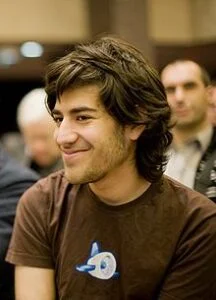
Aaron Swartz, founder of reddit, pioneer of creative commons and a tireless campaigner for open access until his death in 2013
Which brings me back to copyright. Let me start with science. In a world in which we are both freed from repetitive tasks to think and to act, and not required to protect the fruits of our thought for the sake of survival, the greatest global challenges seem suddenly less frightening. To meet them we will need knowledge to be open source, available to the largest number of minds.
An initial very unscientific survey of my Facebook friends highlighted a difference amongst my creative colleagues from those in science. Most people thought a universal income would give them more time to write, and free them from many of their worries. A few thought they would be able to write more of what they wanted and less of what the market dictated. But there was little shift in opinion on copyright.
Universal Income & Creative Commons
The concerns expressed were less about loss of income and more about creative control. It is precisely this concern that the Creative Commons licensing movement seeks to address. A Creative Commons licence allows artists to choose how their work is shared and what may be done with it. Whilst remixing and repurposing have a fundamental place in culture, which is richer as a result of permission to remix and repurpose, a far more central place is held by the notion of building conceptually on what has gone before. If a writer is to take the form of the novel forward, for example, they need to have read Sterne, Woolf, and Joyce. Open access seems to me to be a cornerstone of a potentially huge leap forward in human creativity to match that in science that a universal income could catalyse.
It offers a freedom that is fundamentally at one with what seems to me to be the indie spirit.
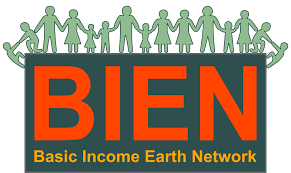
The Basic Income Earth Network provides information, articles, and events on the idea of a universal income.
It is impossible even to ask most of the necessary questions in an article this length, but it is essential to start the conversation. For a wealth of information on all stripes of thought on universal income see the Basic Income Earth Network , and go here for more on Creative Commons.
OVER TO YOU Extending Dan's informal survey among his personal network, how do you think you, and your writing life, would be affected by the introduction of a universal guaranteed income? Would you find yourself writing different things? And would it change your feelings about copyright, specifically would you find yourself thinking differently about the idea of your books being available on a completely open access basis? We'd love to hear your views.
Thank you for whatever support you are able to offer.
#Writers - how would a #universalincome affect your attitude to sharing your work via @CreativeCommons? asks @agnieszkasshoes Share on XRELATED POSTS




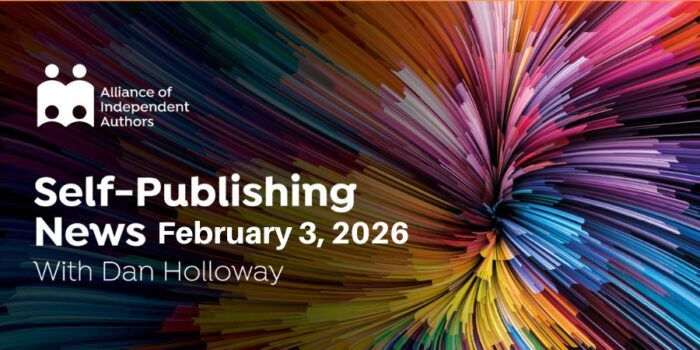
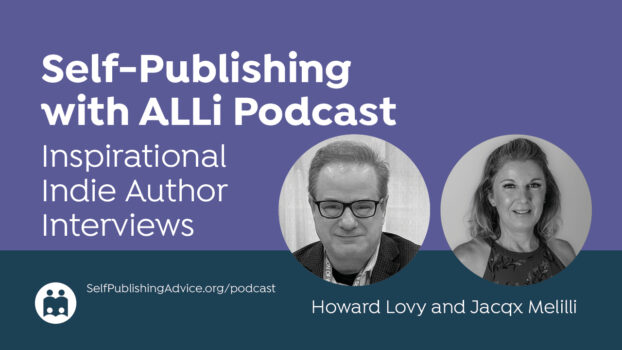
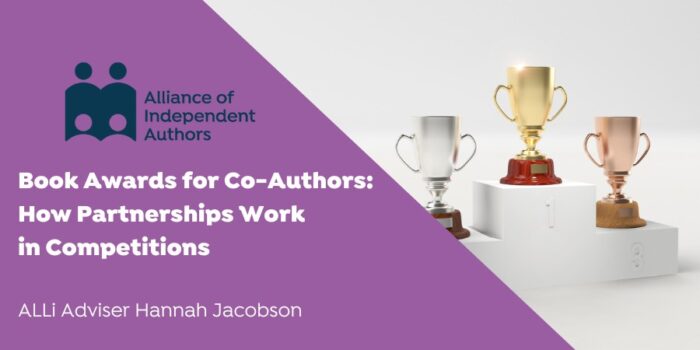
[…] Source: Opinion: Are Indie Authors Really Ready to Open Up? […]
The philosophical question of basic income is being hotly debated around the world. I think, in the end, a hybrid model will have to evolve, where everyone gets paid a basic minimum, which allows them to live comfortably, but you’d need to work if you wanted the luxuries of life. But that is a discussion which is only very tangentially linked to Creative Commons.
As a philosophy, I really do like the idea of Creative Commons for art, as it provides for a much wider spectrum of possibilities that plain old copyright law does.
Coming back to the article, I do agree that basic income would allow a lot more people to think about releasing their work under the Creative Commons license.
There’s not a lot I can say to that as I agree wholeheartedly with all your points.
What a bunch of arrogant BS. Somebody always rules. Greed rises to the top. Somebody has to cut the checks. I earn my money and I pay my way. I hope I never sit next to you on park bench.
I’m not 100% sure I follow your argument. The context I was using for the discussion is precisely a society in which so much of what we now consider “work” is done automatically that it simply will not be possible for people to “earn their money” solely through work. A basic income is one way of trying to ensure that in such circumstances greed doesn’t rise as far as it might otherwise do, but most of all I was interested in how far from being a dystopia, such a radically different society as the one we may be on the verge on might benefit the arts as well as all kind of charitable and altruistic activity that people would be freed to undertake.
If i am to be found on park benches (which, in fairness, I often am – I co-host a poetry in the park night), I will usually be found quietly perusing Emily Dickinson rather than pressuring people into taking my spare copies of Hayek/ Marx.
We can sugar coat it as much as we like, dress it up in new clothes, give it different names, “Universal income,” (BIEN: Basic Income Earth Network) sounds eerily (forgive the adjective) like communism. I agree with Tina Maria L & Dave C.
The theory sounds noble, pure and achievable. It’s not the case in practice.
I believe it is easier to theorize about models and social structures, from a position of privilege (which we all have — access to computers – for one thing.)
I emigrated years ago, in part because of the devastation communism and its affiliate philosophies brought to the continent. (Africa.) It applies to the rest of the world as well.
I have no illusion capitalism lends itself to exploitation.
We are all equal. With different abilities.
If BIEN means a fair minimum wage, I agree. But I don’t believe this is what is intended.
If BIEN implies it’s unfair that some people should not earn $ 12 per hour while others earn $ 2000 per hour I can support it, but not if they say everyone will earn only $ 15 per hour.
It is also interesting to note, Communism (and its pseudonyms) can only follow (and thrive for a while) on the heels of a capitalistic state. It needs the money.
The leaders would keep the masses poor, while they live in affluence.
And beyond the pure financial aspect are the incredible human rights abuses that went hand in hand with such programs.
If we do not learn from the world history, we will indeed repeat it.
At the moment financial reward is not why I spend hours every day writing – but I am definitely planning on receiving remuneration for it.
I am for FAIR remuneration.
Perhaps that should be our goal?
Fixing poverty?
It is a flawed philosophy that “wealth can be redistributed.”
Impossible.
Perhaps organizations like Acumen (Jaqueline Novogratz) whose approach to poverty is bottom-to-top models are more realistic?
Also see what the Gates Foundation does in addressing global poverty and misfortune. (Bottom-to-top.)
These are not theoretical models – they work and bring hope to people.
If you wish to see the effect of paying everybody $ 25 a month- visit Cuba. Time froze in 1958. (or was it 1959?)
Thank you very much for the links.
Specifically on the Creative Commons angle – this is something I’ve been planning for a while. I’m going to re-release my books with a CC non-commercial licence. I already don’t mind people sharing my work, copying, quoting: that just formalises it. I was proud when a Scottish teacher started using one of my stories in teaching as an example of Scots language in horror fiction, and as an encouragement for the kids to read more. That was what got me thinking about changing from an ‘all rights reserved’ model. It reminds me of DRM. I never buy books, films or games with DRM any more, having been caught out by it so many times in the past. But that doesn’t mean I don’t buy things – I often buy DRM-free stuff just to support the creator and concept. So I actually spend more on things!
That sums up what I think a lot of people who really love culture think. And the glimpse into your writing is utterly intriguing!
I wrote a bit more about the Scots thing here http://www.karldrinkwater.uk/2016/06/embracing-difference-and-dialect.html
Thank you – excellent piece. And reading your footnote (beautifully put) – the day before the referendum, didn’t the world feel like a different place?
Last I heard that utopian dream was called communism, and we all saw that way that went – it doesn’t work. It takes away the incentive to work. Why should I spend long hours writing, putting in all the extra labour to produce the best story I can knowing I won’t be rewarded for it, except for a minimum wage? Pointless. I’d rather destroy all my books than allow them to become part of creative commons.
The basic income model has as much support from the libertarian side of the spectrum as the centrally-planned side. What critics of the idea don’t seem to address is what they *do* intend to do when so many jobs are mechanised there isn’t enough work to go around – if the cultural ethos of equating the means to live with “putting the effort in” persists then the only thing I can see their plan would be is creating jobs that don’t really need doing for people to do – and that really *is* what Communism did wrong.
I am not sure I understand the incentive to work thing – I have never needed an incentive to pursue beneficial activity (and a universal income means that we are freed from the need to perform any other kind), and I don’t say that as a boast but because I think it’s representative – the small experiments in basic income that have been run for about 40 years now all show likewise.
I think what we would see is a huge percentage of the population sitting around doing nothing because nothing would be required of them. How many people do we know that would sit around playing with their Xbox all day long if they didn’t have to go to work to earn enough money to feed themselves? I’ve never been a big fan of the utopian dream where everyone’s needs are taken care of without lifting a finger and we can all dance around the big tree in the town square singing songs of peace and love. It has been shown over the course of history that people do not value what they don’t have to work for.
I certainly don’t see it as a utopian dream. On a subject marginally related to the question of culture I’m talking about here, the freeing of the world’s intellectual capital that a universal income would create seems to be an invaluable and possibly essential step towards tackling the great global problems we face – just imagine what could be achieved if everyone who wanted to and had something valuable to offer were able to work on a series of global open source projects on renewable energy and the wider questions around climate change, for example?
I think that Dan is pushing two ideas that don’t have to go together. In his mind they do, but there’s no inherent connection. Basic income for everyone is one idea. Copyright or modified copyright is a completely different idea. The basic income idea is a utopian political project, obviously descended from Communism and/or socialism. Copyright is based on economic freedom, and was originally developed to empower authors, who starved because printers ripped them off.
Yes, absolutely I am pushing two ideas together (because, by and large, that’s how interesting connections are formed), but I think there’s a very natural linkage. It’s a much more natural linkage if you come (which, interestingly, on a personal level I very much don’t) from the libertarian side – the tech-driven libertarian attitudes combine seeing a basic income as a means of freeing time and potential (I agree on that, though I think their approach is much more specifically about freeing it from governmental influence) so that we can do worthwhile things, and a large amount of what they consider worthwhile things are massive open source science and coding projects – hence the very close correlation between proponents of basic income and objectors to paywalled scientific research – and creative commons comes out of pretty much the same movement as the scientific and coding open access movement.